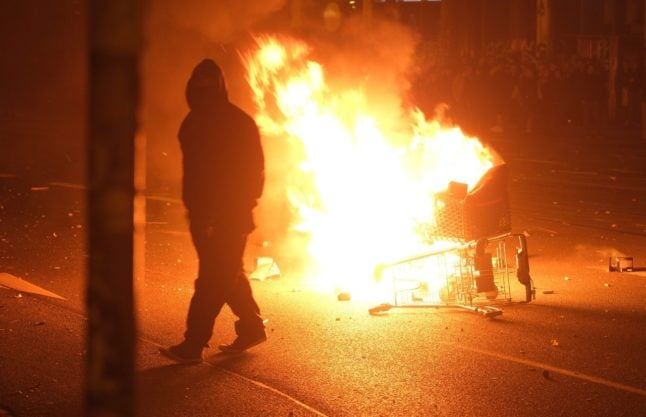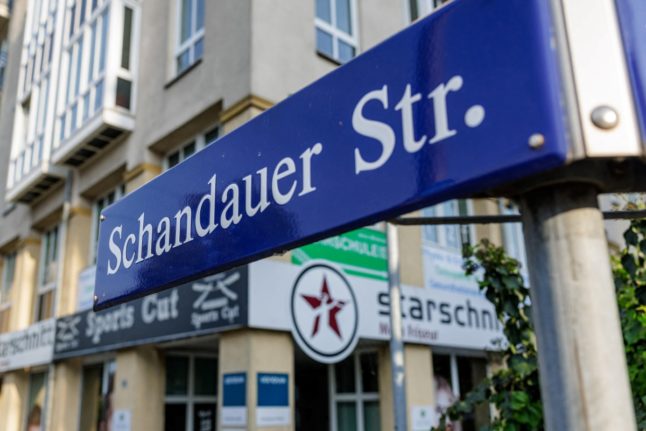Emergency representatives are also calling for more surveillance following assaults on workers during celebrations to bring in the new year in Germany.
There were also several injuries reported in connection with members of the public using fireworks on Saturday night, and a 17-year-old man in Leipzig died from his injuries.
READ ALSO: German’s NYE celebrations marred by death, injuries and attacks
The chaos came after a two-year break due to Covid-19 regulations. During the pandemic, the sale of fireworks around the new year were banned across Germany to ease the burden on health and emergency care staff. But this year no restrictions were in place.
According to an initial report from the Berlin fire service on New Year’s Day morning, 22 people were injured by firecrackers and rockets and there were 38 incidents of emergency service workers being attacked, resulting in 18 injuries, including one hospitalisation.
On Monday, Berlin Senator for Culture Klaus Lederer, of the Left party, spoke out in favour of a nationwide ban. “This would have to be regulated by federal law,” he told regional broadcaster RBB.
The German Fire Brigades Union called for emergency vehicles to be equipped with so-called dashcams – small cameras that could be used to better document attacks.
“It is unimaginable what our emergency services had to experience on this New Year’s Eve,” said the state chairman Lars Wieg.
READ ALSO: Why many German cities become a fireworks hell on NYE
Franziska Giffey (SPD), mayor of Berlin, said that the Senate would discuss the extension of firecracker ban zones. On New Year’s Eve, there were three zones.
She also condemned the attacks, adding that the violence “creates fear and terror and has nothing to do with celebrating the new year”.
Die teils massiven Übergriffe auf Einsatzkräfte von Polizei und Feuerwehr in der #Silvesternacht verurteile ich auf das Schärfste. @polizeiberlin und @Berliner_Fw hatten mit mehr Einsätzen als in den letzten beiden Silvesternächten während der Corona-Pandemie gerechnet. (1/3)
— Franziska Giffey (@FranziskaGiffey) January 1, 2023
Lederer said he was critical of expanding the zones because more emergency workers would be needed at the sites to enforce it.
“I would actually like us to use our police officers for what they are there for and not for cat-and-mouse games in the city,” Lederer said.
However, Kai Wegner, Christian Democrats (CDU) chairman of the party in Berlin, said he opposed a general ban on using fireworks at home.
“I don’t believe that a private ban on firecrackers will solve the problem”, he said.
Wegner told ARD that “criminals attack the police and fire service” and the tradition should not be “taken away from families”.
“This is a social problem, which you can’t solve with a firecracker ban alone, but with recognition, respect for the professions of police and firefighters and with the enforcement of applicable law,” he said.
Thorsten Frei, deputy chairman of the opposition CDU in the Bundestag, told the Rheinische Post that “peaceful revellers should not have to suffer” over the behaviour of a few people.
As well as dashcams in vehicles, the firefighters’ union also said they wanted to see more bodycams, which are currently being tested.
Before the turn of the year, the German Fire Brigades Association spoke out in favour of cracking down on attacks on emergency services. “We don’t need tougher punishments. I just want these penalties to be enforced,” association president Karl-Heinz Banse told DPA.
“It cannot be the case that our people are endangered, almost run over, and afterwards it is presented as a petty offence,” he said.



 Please whitelist us to continue reading.
Please whitelist us to continue reading.
Member comments